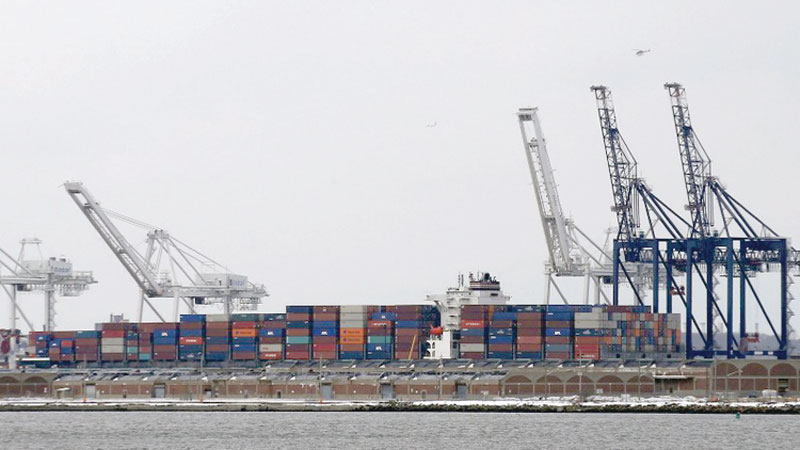

WASHINGTON: New orders for key US-made capital goods rebounded more than expected in February after two straight monthly declines and shipments surged, which could temper expectations of a sharp slowdown in business spending on equipment in the first quarter.
The Commerce Department’s report on Friday prompted some economists to raise their economic growth estimates for the first three months of the year. They were slashed last week after data showed retail sales fell in February for the third month in a row.
The Federal Reserve painted an upbeat picture of the economy on Wednesday when it raised interest rates and forecast at least two more increases for 2018.
“There is speculation that the economy is running out of room to grow. But the jump in core durable goods purchases, machinery that is used in factory production, keeps the recession winds at bay,” said Chris Rupkey, chief economist at MUFG in New York.
Orders for non-defence capital goods excluding aircraft, a closely watched proxy for business spending plans, jumped 1.8 per cent last month as demand increased almost across the board. That was the biggest gain in five months and followed a 0.4 per cent decrease in January.
Economists polled by Reuters had forecast those orders to rise 0.8 per cent in February. Core capital goods orders increased 7.4 per cent on a year-on-year basis.
Shipments of core capital goods increased 1.4 per cent last month, the biggest advance since December 2016, after a 0.1 per cent gain in January. Core capital goods shipments are used to calculate equipment spending in the government’s gross domestic product measurement.
Business spending on equipment powered ahead in 2017 as companies anticipated a hefty reduction in the corporate income tax rate. The Trump administration slashed that rate to 21 per cent from 35 per cent effective in January.
There had been concerns spending could slow sharply after double-digit growth in the last two quarters. While the surge in core capital goods orders in February suggests business spending on equipment is on solid footing, economists said the threat of a trade war cast a cloud on the outlook for capital investment.
“Uncertainty hurts capital spending and the greatest uncertainty in the economic environment at present is the wild-card threat that US tariff actions poses to the global trading system,” said John Ryding, chief economist at RDQ Economics in New York.
For now, spending on equipment remains underpinned by robust business confidence, strengthening global economic growth and a weakening dollar, which is boosting demand for US exports. That is helping to support manufacturing, which accounts for about 12 per cent of US economic activity. — Reuters
Oman Observer is now on the WhatsApp channel. Click here



